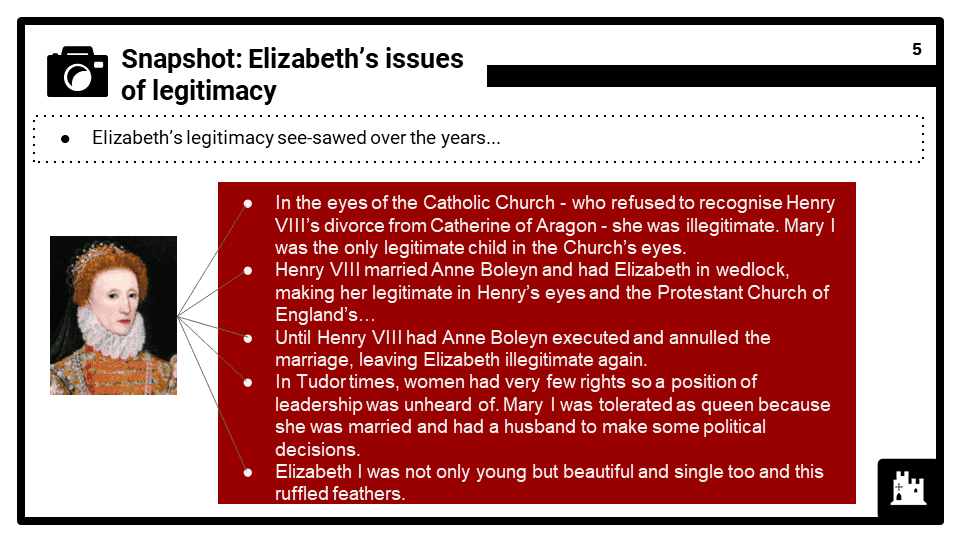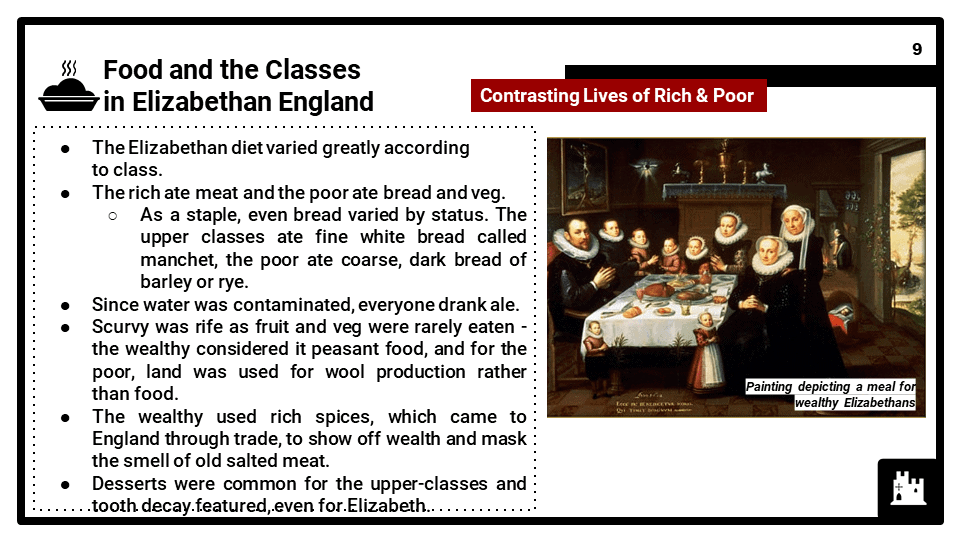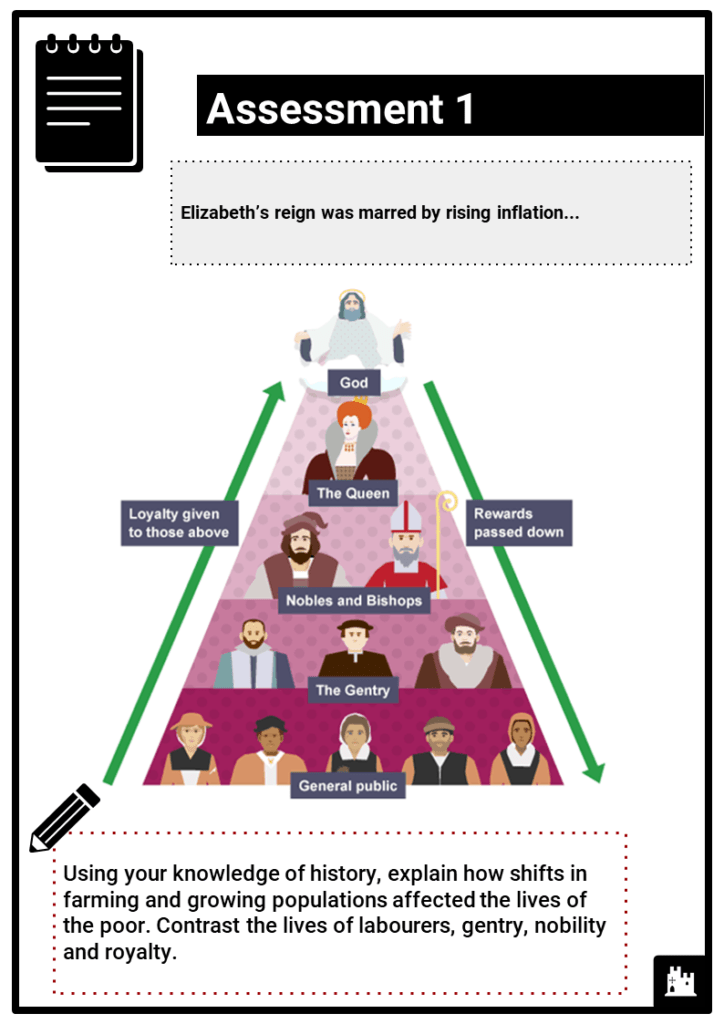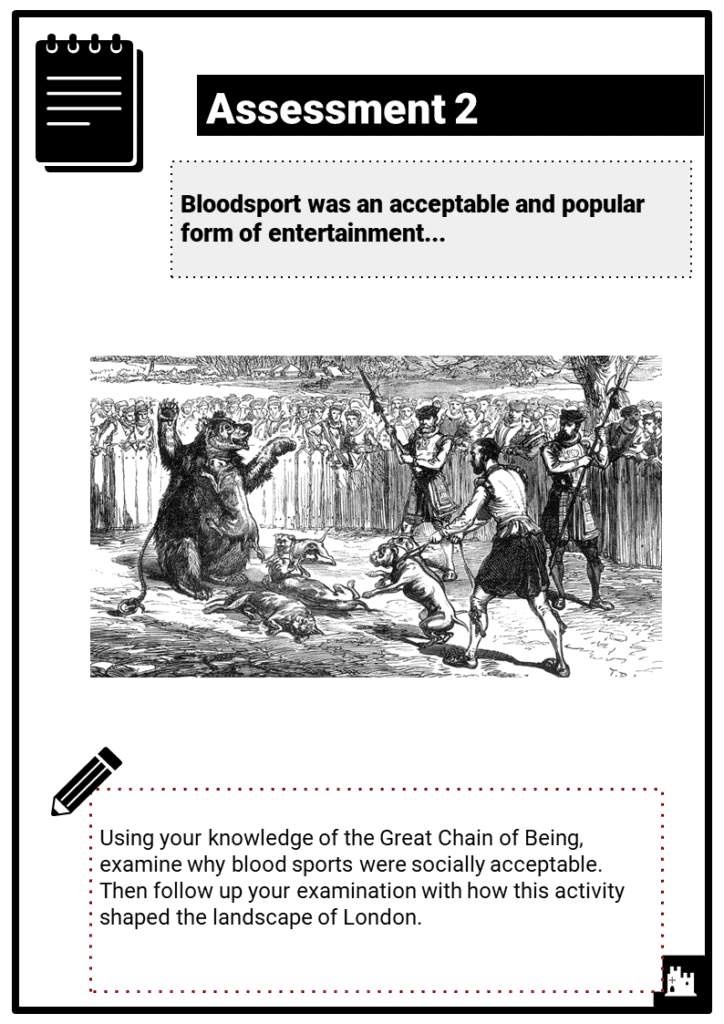Teach any WJEC module : The Elizabethan Age, 1558-1603, no prep needed!
Do you want to save dozens of hours in time? Get your evenings and weekends back? Be fully prepared to teach any WJEC GCSE topic?
Every WJEC topic is covered, and each module comes complete with:
Studies in Depth - Wales and the wider perspective
Written examination: 1 hour 25% of qualification 50 marks (plus 3 marks for spelling, punctuation and grammar and the use of specialist language)
Learners study one Study in Depth from four options in total. This unit focuses study on a substantial and coherent short time scale in the history of Wales within Britain. This unit will provide learners with the opportunity to understand the complexity of a society in the history of Wales within Britain more effectively. Learners should understand how the experience of people within Wales can be distinctive but also that it can reflect the wider relationship with Britain. This unit encourages learners to use a wide range of historical sources. Learners will also study different historical interpretations of specific events and issues.
Unit 1: Studies in Depth
Sub-section: Wales and the wider perspective
Module: 1A The Elizabethan Age, 1558-1603
This option focuses in depth on selected themes and issues relating to the history of the Elizabethan Age, from 1558 to 1603. Learners will be required to consider the major influences on political and social life during the period as well as the issue of religious controversy. Learners should understand how the experience of people within Wales at this time was distinctive but also that this can reflect the wider relationship with Britain. Learners should develop an awareness of how aspects of life in this period have been represented and interpreted and they should also address the key questions in each topic area using a range of historical sources. Where appropriate, these will contain material from Welsh sources. The required content below shows which key features and characteristics of the period must be studied.
Key Questions and Required Content
- Elizabethan government: How successful was the government of Elizabeth I?
- The coronation and popularity of Elizabeth; Royal Court, Privy Council and councillors; local government in Wales; the role of Parliament: issues over taxation and freedom of speech; Welsh gentry – Katheryn of Berain; the Wynn family.
- Lifestyles of rich and poor: How did life differ for the rich and poor in Elizabethan times?
- Contrasting lifestyles of rich and poor; lifestyle of the gentry in Wales - fashion and homes: Plas Mawr, Conwy, St Fagan's Castle; causes of poverty; issue of unemployment and vagrancy; government legislation including the 1601 Poor Law.
- Popular entertainment: What were the most popular types of entertainment in Elizabethan times?
- The importance of popular entertainment; cruel sports; the Elizabethan theatre – design and plays; attitudes towards the theatre in Wales and England; traditional pastimes - Cnapan.
- The problem of religion: How successfully did Elizabeth deal with the problem of religion?
- Religious problems in 1559; the Religious Settlement; Acts of Supremacy and Uniformity; reactions to the religious Settlement in Wales and England; the translation of the Scriptures into Welsh and its impact on Wales and the Welsh language: Bishop William Morgan, Richard Davies and William Salesbury.
- The Catholic threat: Why were the Catholics a threat to Elizabeth?
- Early toleration; the rebellion of Northern Earls 1569; Elizabeth's ex-communication in 1570; Catholic plots: Ridolfi, Throckmorton, Babington; the role of Mary, Queen of Scots; Catholic recusancy in Wales including Richard Gwyn, Edward Jones, John Jones and William Davies.
- The Spanish Armada: How much of a threat was the Spanish Armada?
- Reasons for the Armada; course of the Armada: events in the Channel, Calais, ‘fireships’ and return to Spain; results of the defeat of the Armada
- The Puritan threat: Why did the Puritans become an increasing threat during Elizabeth’s reign?
- Puritan opposition in Parliament and Privy Council; measures taken to deal with the Puritan challenge; the attitude of the authorities to the Puritan challenge in Wales including the trial and execution of John Penry, 1593.






